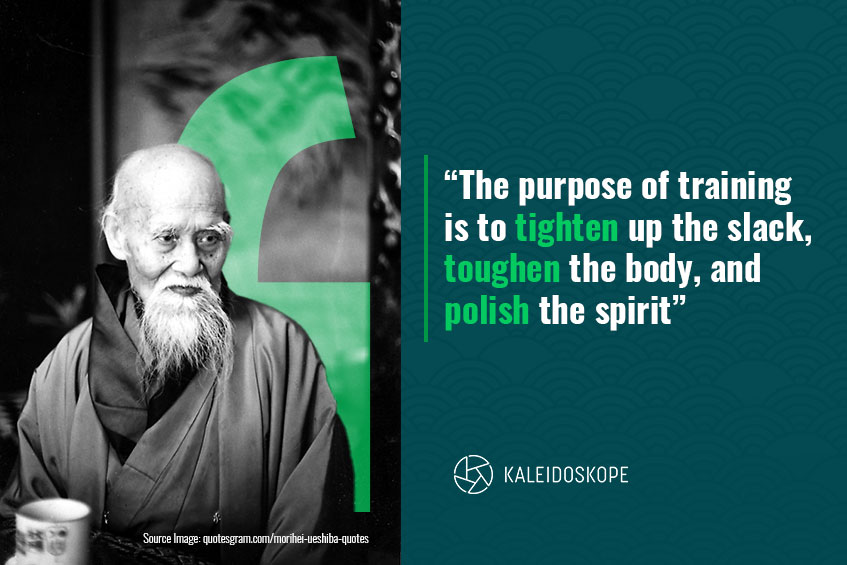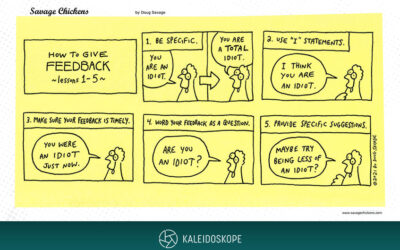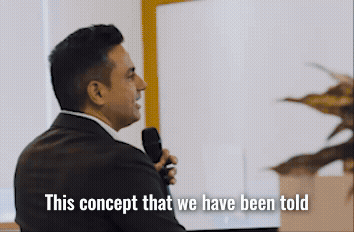
The purpose of training is to tighten up the slack, toughen the body, and polish the spirit. — Morihei Ueshiba
Shu-Ha-Ri is a Japanese martial arts philosophy describing the three stages of learning and skill development an individual typically goes through when mastering a particular discipline or art form. The concept has been adopted and adapted in various aspects of Japanese culture, including leadership training.
The Shu-Ha-Ri approach to leadership training underscores the importance of storytelling, building trust, having difficult conversations, and achieving objectives with the team, among others. Additionally, it provides thinking tools and a frame of reference to approach learning.
In a rapidly changing world, where continuous learning and adaptation are vital, the Shu-Ha-Ri philosophy offers a timeless and universally applicable framework for personal and professional development.
Shu (守) – The Beginner Stage
During the “Shu” stage, learners focus on understanding and following the rules, principles, and techniques set forth by an expert or a master. Or in today’s context, coaches, mentors, managers, and generally, those who hold leadership roles.
The emphasis at this stage is on acquiring fundamental knowledge, skills, and established best practices. Learners often mimic the actions of their instructors and adhere closely to traditional methods.
In a learning context, adult learners in the Shu stage are akin to novices who seek structure and guidance from a teacher or mentor. They are open to receiving instructions and prefer clear step-by-step processes. They are not yet ready to question or challenge the established methods.
At Kaleidosokpe, our learning workshops start by teaching our participants frameworks, subject-matter knowledge, and best practices for real-world applications. Often, participants are required to do some pre-workshop reading, watch a quick video, or be acquainted with a concept on the topic.
Ha (破) – The Intermediate Stage
The “Ha” stage is the intermediate phase of learning, where learners start to break away from rigid adherence to the rules and begin to explore and experiment. They gain a deeper understanding of the underlying principles and rationale behind the techniques they learned in the Shu stage.
Learners start to make connections between different concepts and apply their knowledge in a more flexible manner.
In our workshops, participants are encouraged to reflect on and present their learnings, exploring and expounding on the topic in various contexts and scenarios. Then they start practising the concepts in a safe workshop environment under the supervision of our trainers and facilitators.
This approach helps participants build the confidence to try out new skills when they go back to their workplace. They may also start adapting the techniques they learned to suit their own preferences and circumstances.
Ri (離) – The Advanced Stage
The “Ri” stage represents the highest level of mastery and expertise. In this stage, learners transcend the teachings and guidance of their instructors, becoming independent and innovative thinkers. At this point, participants are likely to have internalised the principles to the extent that they can create their own techniques and approaches.
“Ri” is about breaking free from tradition while remaining deeply rooted in the core principles of the discipline.
At Kaleidoskope, our post-workshop coaching sessions (usually short and virtual sessions) continue to support our learners in their journey. At this stage, our participants have had time to practise and flex their new skills, and learned behaviours. They would have a more profound understanding of the subject matter and, as leaders, may be also capable of teaching and mentoring others.
The Shu-Ha-Ri Leadership Journey
The Shu-Ha-Ri concept stresses the importance of respecting tradition and foundational learning (Shu), moving toward a stage of adaptation and exploration (Ha), and eventually achieving a state of autonomy, innovation, and even coaching, and mentoring others (Ri).
A caveat — this learning process is not strictly linear as learners may revisit different stages, thereby deepening their understanding and continually refining their skills over time.
At Kaleidoskope, our workshops are customised and contextualised to our client’s specific learning objectives, and our learning journeys are designed in the spirit of Shu-Ha-Ri. Moreover, our pre-workshop learning activities and post-workshop coaching sessions are intentionally designed to support our learners’ journey.
By breaking the learning journey into distinct yet interconnected stages, Kaleidoskope’s workshops provide individuals and teams with a clear roadmap to mastery. Our approach not only promotes individual growth but also empowers learners to become mentors themselves.
Since our inception, Kaleidoskope has been working closely with various Singapore companies and government agencies to customise learning solutions and tailor learning journeys, so that there is no disparity between the training provided and the needs of the people. Kaleidoskope’s high-engagement and high-impact leadership training effectively ensures that Singapore organisations and companies reach their goals toward enhancing their teams’ productivity and organisational development.
If you or your organisation are looking to embark on a transformative learning journey that aligns with your unique goals and challenges, Kaleidoskope invites you to explore our range of customised workshops and coaching sessions.
Join the many satisfied clients who have unlocked new levels of mastery, innovation, and success through our programs. Contact Kaleidoskope today, and take the first step toward a more empowered future for yourself and your team.
Related Blogs
The Most Resilient Team at the Winter Olympics Never Won a Medal
Behind every seamless Winter Olympics performance stood a team that never won a medal. Their quiet resilience is the lesson every organisation needs.
If Feedback Only Happens Once a Year, It’s Too Late
When feedback is saved for once-a-year conversations, its power is often lost. By the time issues are raised, opportunities for learning and growth have already passed. This article explores how building a strong feedback culture through everyday conversations strengthens trust, development, and performance at work.
From Pressure to Power: Finding Strength in Stress
Stress doesn’t have to break you. This article explores how to reframe stress as a catalyst for growth, revealing proven techniques to stay resilient, focused, and in control when challenges arise.







